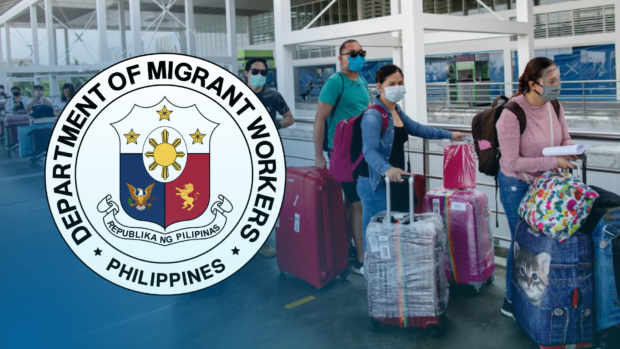DMW sets new guidelines for Saudi-bound residential support workers

(INQUIRER FILES)
MANILA – The Department of Migrant Workers (DMW) has introduced new guidelines for approving job orders for residential support workers and cleaners destined for Saudi Arabia, aimed at improving the protection and welfare of overseas Filipino workers (OFWs).
DMW Undersecretary for Foreign Employment and Welfare Services Felicitas Bay explained that the guidelines are the result of a collaboration between the DMW and the Saudi Ministry of Human Resources and Social Development.
The initiative introduces new job categories that focus on providing enhanced safeguards for female OFWs.
“These workers are different from household domestic workers,” Bay clarified.
“Primarily, the residential support workers will be responsible for maintaining cleanliness in residential areas. Hindi mag-aalaga ng bata o employer (They will not take care of children or their employers).”
Bay further explained that residential support workers will hold skilled visas, unlike domestic workers who are typically employed by individual families.
Article continues after this advertisementInstead, these workers will be employed by mega recruitment companies (MRCs) rather than private households.
Article continues after this advertisementThe new guidelines guarantee competitive wages and benefits for residential support workers. These include a monthly salary of 1,500 Saudi Riyals (about PHP23,000) and 500 Riyal (PHP7,500) food allowance.
The salary will automatically adjust if new minimum wage policies are implemented by either the DMW or the Kingdom of Saudi Arabia.
Regular annual reviews of compensation will also take place.
Workers will be entitled to overtime pay for any hours worked beyond the standard eight-hour workday, in line with Saudi labor laws.
Additionally, they will receive health insurance and have access to free emergency medical and dental services, as well as medicines in case of illness or injury during their employment.
The MRCs will be responsible for providing workers with appropriate accommodation and transportation to and from their workplace.
The guidelines also mandate that workers retain their passports, residency permits (iqama) and other personal documents.
Furthermore, the DMW has emphasized that residential support workers will not be required to pay placement or recruitment fees.
To ensure the welfare of the workers, MRC employers must appoint welfare desk officers to monitor their conditions and address any employment-related issues.
With this new system, Undersecretary Patricia Yvonne Caunan believed that labor-related issued will drop.
“We expect fewer problems with this new system, as the workers will only deal with one employer, the MRC, unlike in the past, when domestic workers had to handle multiple employers,” she said. (PNA)